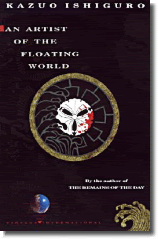
Title: Beyond the last blue mountain (Link to Goodreads)
Author: R.M. Lala
Genre: Non-Fiction
Published In: 1992
My Rating: 3.5 on 5
The name Tata is not new to Indians and is taken with great reverence. It is synonymous with integrity and ethical practice. The company has seen many a visionary leaders at the helm who have played their part in expanding the business while keeping the company’s core principles intact. The founder, Jamsetji Tata, is credited for sowing the seeds and the Chairmans who took up the baton are equally respected for nurturing the plant and for making it a mammoth tree which it is today. Jamshetji passed on the baton to Dorabji Tata, who in turn brought J R D Tata as the leader. When JRD took over, Tata already had established itself in 14 enterprises and when JRD retired from the company, it had more than 90 enterprises, the most noteworthy of these being the aviation industry – domestic and international airlines.
R M Lala’s book chronicles the life of JRD Tata, from his birth to the last leg of his life, while focusing on how his childhood was influenced by the tall leaders in the family and how he was groomed to be the future leader of Tata & Sons. It is very clear JRD was born with a silver spoon – born in France, educated in elite schools and frequent trips to foreign locales, but a point to note is how grounded he still was to the reality and understood the pain of the masses. His humility is celebrated through the various anecdotes. When JRD established the first mail airline service, he flew the planes himself since there weren’t many pilots, while managing his other responsibilities as a Chairman.
JRD was a visionary. He predicted the importance of airlines in the commercial success of a country and established one even when the country was under the influence of the British. He expanded the Taj group of hotels, envisioning the tourism industry which was to bloom. He was a stickler to punctuality and would ensure that every Air India plane took off and landed at the right time – even if it meant that it flew in circles over the airport to avoid landing early.
This biography does justice to the tall image of JRD and gives glimpses of JRD as a Chairman, as a father and as a person. The latter part of the book goes into JRD’s introspection of his life and his contribution to Tata. However, the author often digresses into irrelevant things – a description of Winston Churchill, the number of dishes and gifts offered at a banquet, a few pages on the qualities of Kish Naoroji and Dr Matthai – how do these help in understanding JRD better? If the author had focused only on the personality under discussion, the book could have been easily half its current size. I had hoped to get more insights into how JRD ran his business – the kind of decisions he made, how he weighed his options, how he took risks and how he ran such a mammoth company. The book gives tiny glimpses into this, which is fine, since this is a biography and not a management book.
Despite the length and at times boring narration of incidents, this biography is still a worthy read if one wishes to understand the person behind the name JRD Tata.





































































































Leave a comment